Year: 2019
News
It does not take much to bring a hidden event to the surface.
A tiny piece of paper, for example, can be enough — a concert ticket — to reveal a concert of Furtwängler that figures neither in the Trémine list, nor even in his source for Berlin, the voluminous history of the Philharmonic written by Peter Muck.
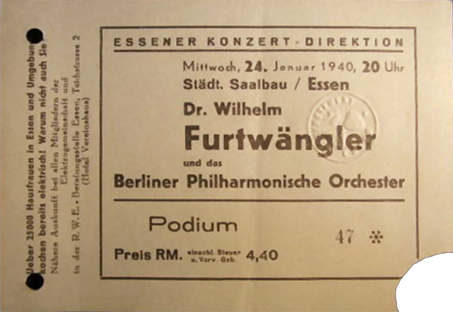
On 24 January 1940, the Berliner Philharmoniker and their conductor gave a concert in Essen the day after an evening at The Hague (the facsimile of the programme can be found on the SWF site) and on the eve of the stopover in Cologne in the course of this tour.
We have added it to the concert list on our site, unfortunately without the details of the programme. Any info gratefully received…
Work on the future product for downloading is almost complete. The studio Art et Son has cleaned the files from Swedish Radio: some slight but acceptable background noise, a number of ‘clicks’, some very audible that had to be removed ‘by hand’, a well balanced sound in the spectrum (just some sunlight lacking in the higher register) and a generous dynamic.
At the same time the sleeve notes are currently being prepared (and translated):
– the text drawn up by the late lamented Lee Schipper for the original LP edition of more than thirty years ago,
– some press cuttings of the time,
– the list of the Philharmoniker in 1943.
So the baby is looking good! Here is a sound snippet to whet your appetite
Release date: early October.
On 19 October next the concert the SWF is organising to mark its fiftieth anniversary will be held in the Salle Cortot, Paris.
Do we really know this historic place? Not so sure! Here is a little study for some more info about it.

Here we are in mid-August and it is back to work, preparing what is going to happen in two months’ time, on 19 October.
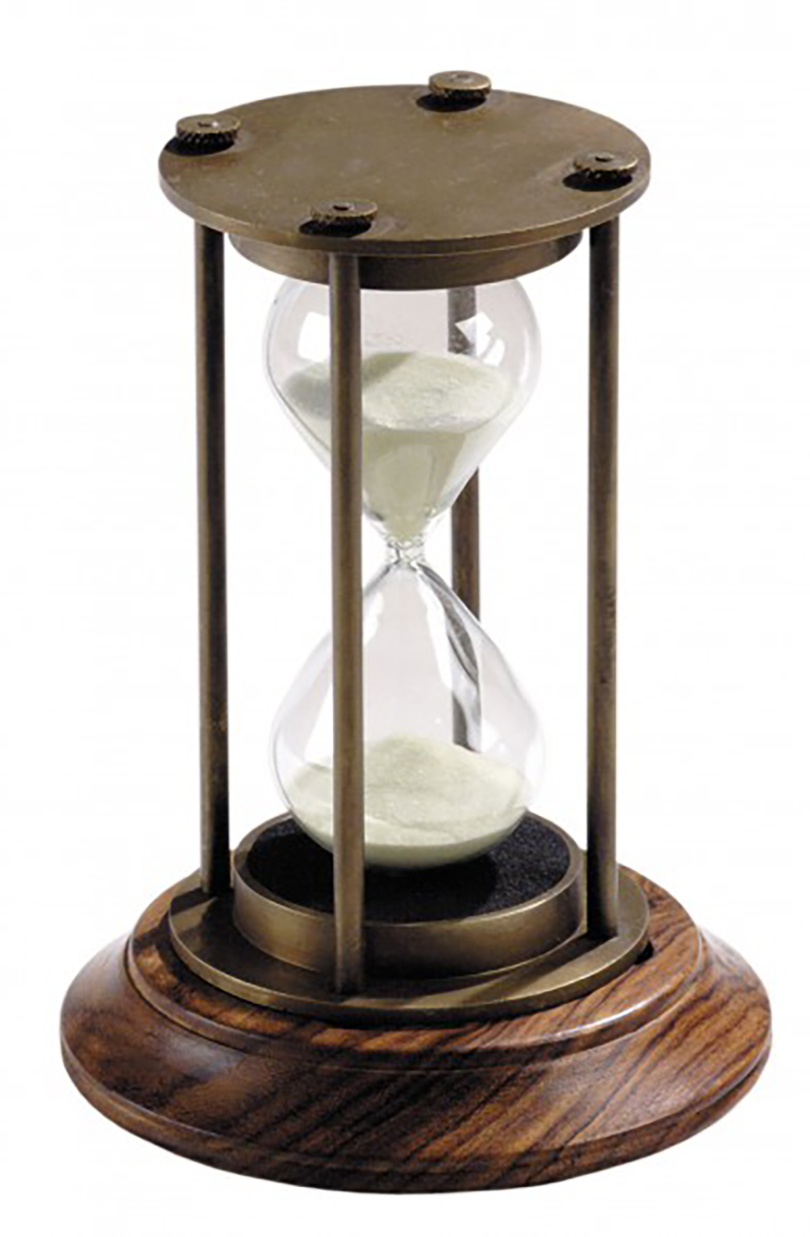
On that day the SWF will celebrate its fiftieth anniversary. The general assembly will be followed by a concert, and behind it all will be the release of a new product for downloading. In two week’s time, you will see a modified title banner at the top of the page: it will refer you to all the details of these events.
So don’t wait, mark the 19 October in your diary!
Sixty-six. That is the number of new items posted on this site since autumn 2018…
That merits a slight break. See you again in mid-August!

The SWF continues its work of making available, through downloads, of sound documents of the highest importance.
After various releases — above all of the Deutsches Requiem of Stockholm (SWF D03) — this autumn will see the online availability of a new document: the Schubert concert, given by the Vienna Philharmonic in Stockholm in 1943.
The SWF had published this in vinyl, then in CD. Satisfaction, however, had not been total: the musical value of the performances was not in question, but the technical result, yes. Times have changed: the edition we shall offer you is based on the original source, that of Swedish Radio, with which the relationship established on the occasion of the Deutsches Requiem is producing great results.

As for the Requiem, it is Christophe Hénault (Art et Son) who has been entrusted with the transfer and work on the sound. In fact the quality of the document is exceptional for its time — a magnetic recording later transferred to LPs for archiving. To be true, it is not free of a slight background noise, nor of clicks that will be eliminated, yet the scope of the sound spectrum and the dynamics do justice to the performance.
We have the whole of the 9th Symphony, the first movement of the Unfinished, as well as the first few minutes of the Emperor Waltz, which was given as a encore. The rest has not been preserved, notably the Overture to Rosamunde that began the programme.
One reaction is self-evident: Furtwängler, in this haven of peace represented by then neutral Sweden, showed himself to be relaxed, far removed from the nervousness, the rage even, that marked a number of his concerts in Berlin or Vienna at that time.
Here we consider what proved to be the last world première under Furtwängler’s baton.
The conductor gave a number of first performances during his career. Our recent study Furtwängler and Schoenberg gave an account of one of the most tempestuous of these, that of the op. 31 Variations. Another, less distressing but equally significant, was the première of Richard Strauss’s Four Last Songs, shortly after the composer’s death, given by Kirsten Flagstad on 22 May 1950 in London. Furtwängler conducted the Philharmonia in concert for the first times.
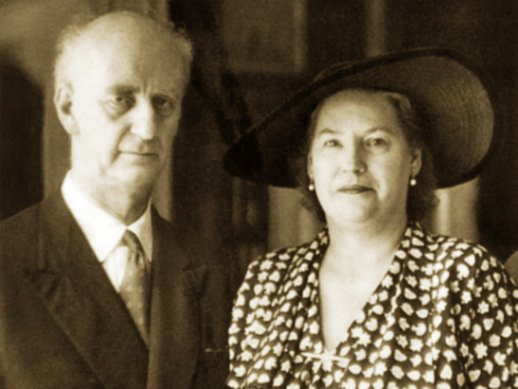
We present the facsimile of the programme in our section Get the programme! The commentary on this document was written by SWF member Roger Smithson.
He provides answers to many questions, except one: will we one day have a good recording of this concert?…
We were expecting Warner, and it is DG that takes us by surprise!
Our faithful member Jean-Luc Tardivat was the first to draw our attention to the important release next autumn: DG is releasing a boxset of 34 CDs + 1 DVD, encompassing everything that DG and Decca (which is part of the same group) has had in its archives for ever, or least for a long time.
We shall find the Polydor of the pre-war period, the wartime radio recordings, of Vienna and Berlin — rivalling for these last with the recent release of the Berliner Philharmoniker (voir l’article) —, the few official discs of DG and Decca from the early 1950s, that complete the radio recordings that these two labels have been exhuming over the past several decades. And, as an extra, DG includes a DVD of the film of Don Giovanni from Salzburg 1954.
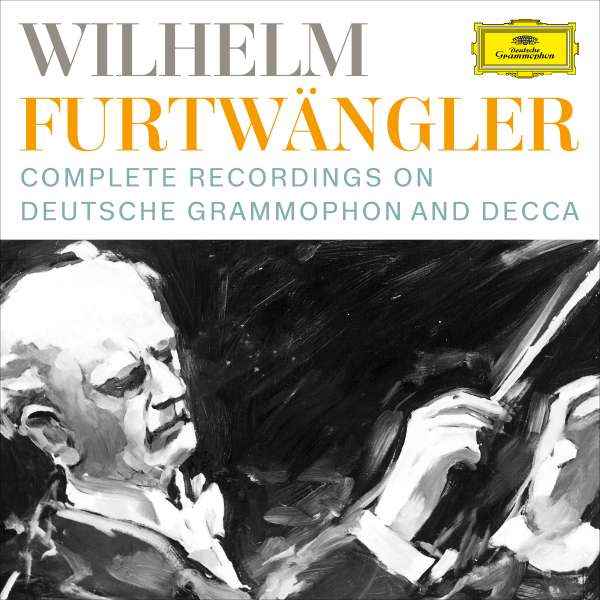
Do we have reasons to be satisfied? Naturally, any Furtwänglerian can only be delighted to see that his favourite conductor is still the object of such sustained attention, and for an unprecedented price: €99.99!
That said, we should like to know what kind of mastering was effected by DG? The Berliner — even taking into account a few minimal reserves — have undertaken some truly thoroughgoing work, fully justifying production of their boxset.What about DG? We certainly ought to hold back on a definitive judgement — we have not yet listened to it — yet we fear that DG has been content just to make a compilation, albeit on a larger scale, of what is already available.
Let us therefore wait a few weeks!
Where the devil did Furtwängler’s hand go?
On 5 June 1950, in Paris, the day after a concert, Wilhelm Furtwängler was in a kitchen or the backroom of a shop, where his right arm — the one that holds the baton — is hidden by an ample covering of plaster. An illustrious mould!
Except that, despite extensive searching, Furtwängler’s hand has disappeared. The baton also. There remain the recordings they have conducted. We shall make do with them!
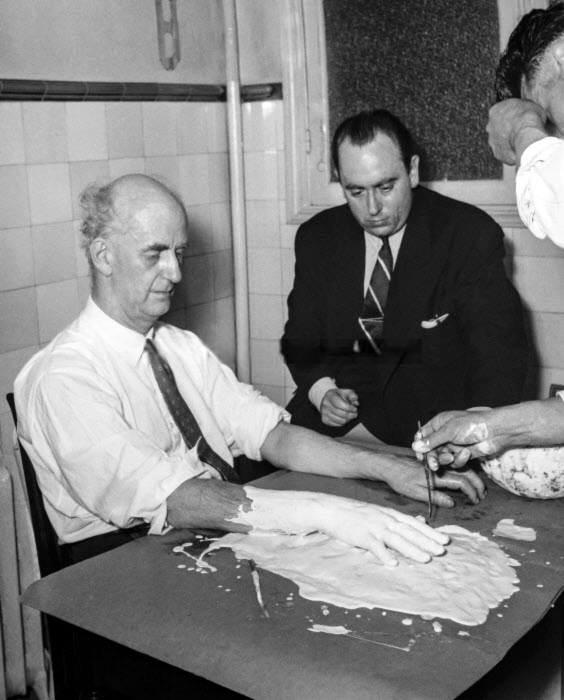
Interview with Philipp Bohnen, first violin of the Varian Fry Quartet. The Varian Fry Quartet has been invited by the SWF to play in Paris on 19 October next for the association’s fiftieth anniversary.
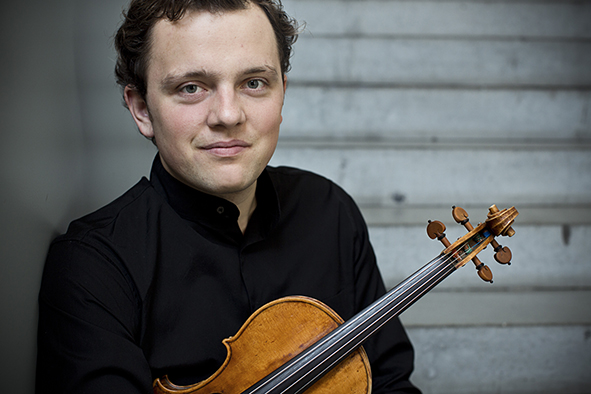
1- Philipp Bohnen, you are a violinist with the Berlin Philharmonic as are the other members of the Quartet. One question immediately comes to mind: does the name Furtwängler still mean something for a Berliner of today?
Yes, of course it does. Wilhelm Furtwängler is until today as present in the memory of the orchestra as Herbert von Karajan, also to the younger generation of us musicians.
Just in the beginning of June we played with Daniel Barenboim who talked a lot about Furtwängler. How he had played for him, how Furtwängler invited him to come and see his rehearsals and learn from him. Furtwängler made a deep impression on Maestro Barenboim and he is a very regular guest and the first honorary conductor of our orchestra. And in Mr Barenboim mind and ears he still hears the interpretations of Wilhelm Furtwängler, as he said. And so through Maestro Barenboim who of course brings also so much of his own ideas, Wilhelm Furtwängler’s music can in a way still be heard today.
2- Is it easy to reconcile your duties with such an orchestra and your work within the Quartet?
For us musicians of the Berlin Philharmonic it is of course the most important thing to play in the orchestra and to do so at the highest possible level. But a lot of our colleagues do chamber music in all different kinds of groups. We as a quartet feel that both Ensembles help each other.
As a quartet we benefit a great deal from our work within the orchestra. We are very inspired by the colors our colleagues play for example their wind solos with and also the power of such a string sections as we have it in the orchestra, is something not every quartet has as a musical background. So the inspiration of that is amazing.
But we also feel, that playing in the quartet helps us in the orchestra. When we study our quartet repertoire, we usually have a lot more time to work on little details. We take our time to really become one instrument and those musical experiences are very precious and fulfilling.
3- Unless I am mistaken this is the first time you will have performed in France. Does this have particular significance for you?
Yes, that is true, we will perform for the first time in France and we are really looking forward to it. We know from our concerts with the Berliner Philharmonic how fantastic it can be to play for the audience in France. I always feel that people listen with very open ears and therefore are open to new ideas. At the same time you always feel the very warm atmosphere in the halls.
And to perform in Paris, one of Europe’s and the world’s cultural capitals, is really a dream come true. Also because of our name patron Varian Fry.
4- More generally, what repertoire are you working on? Does the music of today feature among your concerns?
The repertoire of our quartet world is so rich and amazing, that we do not want to either focus on something particular nor rule something completely out. We try to create concert programs that make sense together. Usually, we like to combine repertoire of different times. The music of contemporary composers can be very good, challenging and exciting. We haven’t had too many contemporary composers in our concert repertoires yet but there is definitely more to come in the future.
5- I am not sure the name Varian Fry is well known in Germany, but neither is it in France. Would you tell us something about it?
Varian Fry was an American journalist who helped over 2,000 people to flee from the Nazi regime during the Second World War. He was based in Marseille and organized a whole network of helpers. He saved artists, writers and composers such as Hannah Arendt, Lion Feuchtwanger, Klaus Mann, Franz Werfel, Marc Chagall and Bohuslav Martinu. And of course many many more.
The city of Berlin named a street after him and that is how we first found out about him because that street is located very close to the Philharmonie. For us, our name is very important because of two reasons: We honor a man who was so brave to put his own life at risk to save others, and the ‘Varian Fry Strasse’ is very close to the Berliner Philharmonie, our musical home.
We would feel most honored if us taking Varian Frys name helped a little bit, not to forget him and maybe for some people to get to know him and to be inspired by his bravery.
(Compiled by Stéphane Topakian)
(Sibelius + Beethoven) – (Schubert + Ravel + Wagner) = Pfitzner
We had already pointed out the programme changes that litter in joyous disorder the concert lists of Furtwängler. Here is one that made almost complete nonsense of a poster.
For his concert of March 1944 at the head of the Vienna Philharmonic, the pre-programme at the start of the season announced: Sibelius, Suite Karelia – Pfitzner, Symphony op. 46 – Beethoven, Symphony No 7.
The subscribers — happy or frustrated? — were in fact regaled with: Schubert, Symphony No 8 – Pfitzner, Symphony op. 46 – Ravel, Daphnis & Chloé (suite No 2) – Wagner, Overture to Tannhäuser.
At least Pfitzner’s fans could say ‘phew’!

Some of our members have finely tuned ears! They have discovered that Gluck’s Overture to Alceste, listed in the contents of the boxset Berlin/Archives 1939-1945 published by the Berliner, greatly resembles —but really greatly— the same overture recorded in studio by Telefunken (29 October 1942) following the concerts (25 to 28 October). The label presented it, however, as in fact coming from the concert itself, along with Schumann’s Cello Concerto and Bruckner’s Fifth.
Many elements support their assertion:
– the acoustics are not the same: Singakademie for the disc, Philharmonie for the concert,
– the medium is typical of the 78rpm record: a slight but persistent crackle and no use of a tape,
– the public is oddly silent,
– the timings are absolutely identical and a few small noises occur in the same places…
It is evident that the producer introduced a foreign element into the programme: a commercial disc alongside live performances, in order to ‘fill the gap’, the tape of Alceste not having survived!

In itself this is not so dramatic; yet it would have been correct to mention it and explain it.
As always the SWF is careful to ensure the precision of its data. With our thanks to Roger Smithson, Philippe Jacquard and a few others for the pertinence of their observations.
